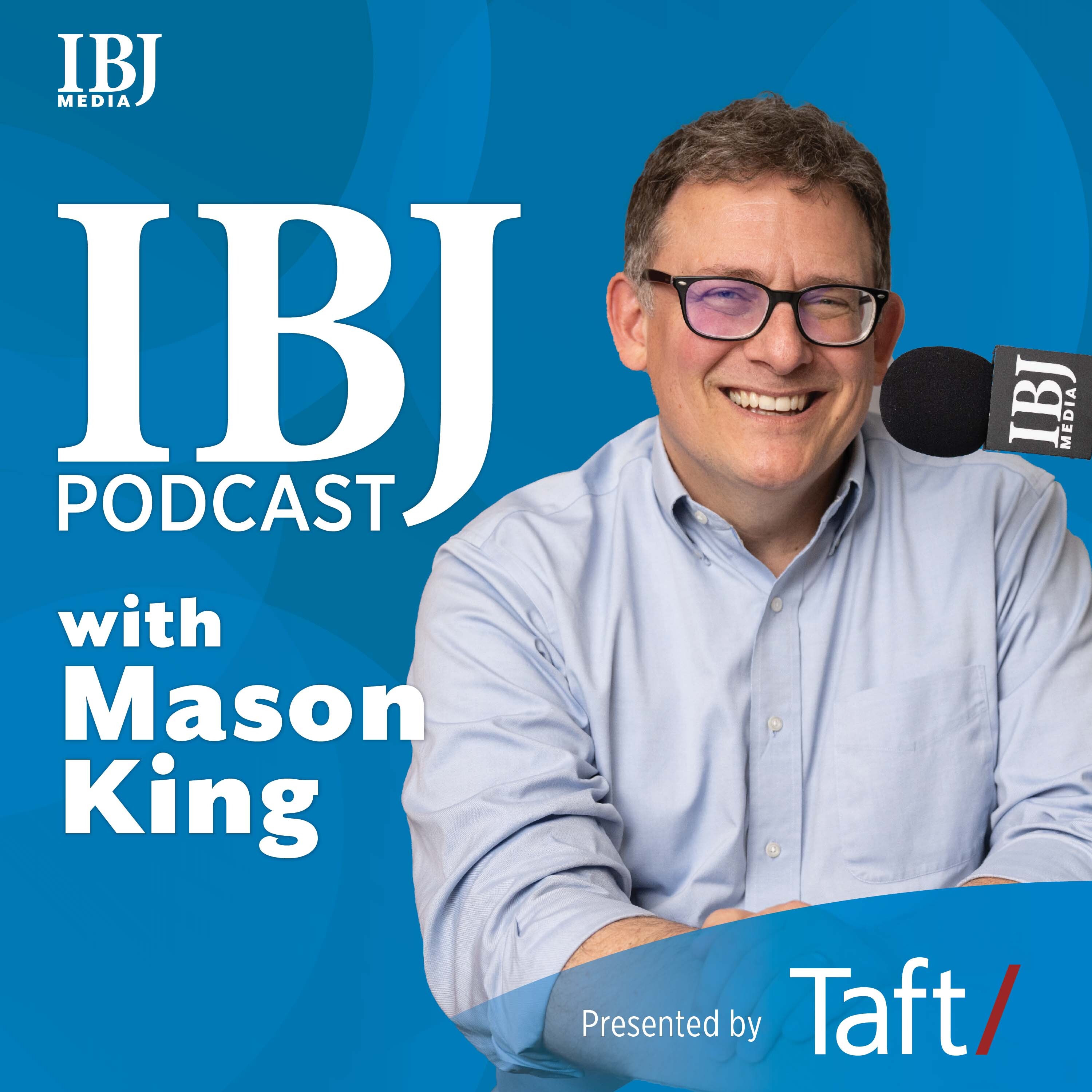Episodes
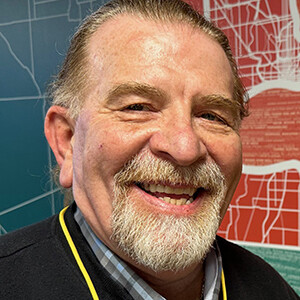
Sunday Jan 28, 2024
Sunday Jan 28, 2024
The concept behind the local not-for-profit group RecycleForce can be stated in a very elegant maxim: “We’re recycling electronics, and recycling lives.” When you get into the nitty-gritty details, RecycleForce is not nearly as refined, but accepting things that are rough around the edges is integral to its mission.
Entrepreneur Gregg Keesling hit on this set of solutions to two persistent problems in the early 2000s: Give people who have just been released from jail or prison a much-needed opportunity for temporary employment by training and hiring them to salvage recyclable materials from electronic waste. The ex-offenders also receive comprehensive services designed to get their lives back on track, including job skills, personal counseling, professional mentoring, literacy training and connections to full-time, permanent jobs.
RecycleForce has employed thousands of formerly incarcerated individuals since 2006 and recycled about 10 million pounds of waste. But there’s so much more to the story. Keesling grew up about an hour outside of Indianapolis, and one of the major themes of his life has been transformation. Beginning at 16, he played a minor role in the drug trade, procuring marijuana with his friends and regularly driving his family’s station wagon to Florida to pick up pounds of pot to transport back to Indiana for people who would pay a delivery fee. He moved to Jamaica for its easy access to pot, but he ended up becoming a straight-laced businessman who developed a vacation resort and joined the Rotary Club.
In this week’s edition of the IBJ Podcast, Keesling discusses how RecycleForce’s new headquarters in Indianapolis will help it do more with the recyclable materials and the people it trains. But he also talks at length about his own story and how he has learned the importance of giving people a chance to change and succeed.
The IBJ Podcast is brought to you by Taft.
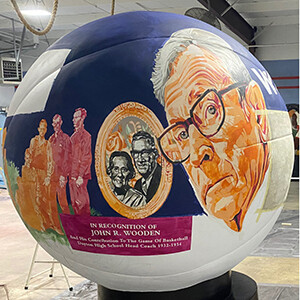
Sunday Jan 21, 2024
Sunday Jan 21, 2024
At least as far back as the 2012 Super Bowl, Indianapolis has built a reputation not just for its excellence in stitching together all of the elements of large sports events but also for finding ways to weave the work of local artists and craftspeople into the fabric of the event. For the NBA All-Star Weekend set for Feb. 15-18, local organizers hit on a way to put a distinctly Hoosier spin on the areas downtown that will host the most visitors, playing off of the concept of Hoosier Hysteria.
Here’s the idea: Create 24 giant fiberglass basketballs that would act as blank canvases for 24 artists. On the balls, they would paint scenes relating to the people, places and specific game we most associate with Hoosier Hysteria. Obviously, the Milan Miracle is on the list—the 1954 state championship that inspired the movie “Hoosiers”. And there’s a ball dedicated to the legendary 1955 champions from Crispus Attucks High School—the first all-black squad to win an open state championship in the nation. You’ll also see balls referencing the annual Indiana-Kentucky game, the effect of Title IX on high school basketball and the never-ending debate over class basketball.
The project is called Hoosier Historia. For this week’s edition of the IBJ Podcast, host Mason King went to the warehouse where artists are working on their pieces before they’re deployed in the Mile Square. He interview to several of the artists, who in some cases were chosen for their close personal connections to the schools they’re depicting. And organizer Julia Muney Moore of the Arts Council of Indianapolis discusses the challenges of mounting a large-scale public art project in February that will only be display for a handful of days before dispersing across the state.
The IBJ Podcast is brought to you by Taft.

Sunday Jan 14, 2024
Sunday Jan 14, 2024
For people outside of Indianapolis, the focus of NBA All-Star Weekend next month will be an offense-only exhibition game between the league’s biggest stars. But the expansive festivities surrounding the game in Indianapolis will essentially be a celebration of Black excellence. The league has come to embrace the way its players have pushed the sport into the realms of Black culture, including music, fashion, cuisine, acting and art. A cavalcade of Black celebrities will be on hand as Indianapolis becomes a cultural magnet.
One of the many events timed to coincide with all-star festivities is the debut run of a play about the 1955 Crispus Attucks High School basketball team, led by Oscar Robertson, that became the nation’s first all-Black squad to win an open state tournament. Titled “A Touch of Glory,” the play will be performed at the high school, just north of downtown’s core. For the podcast this week, IBJ arts and entertainment writer Dave Lindquist hosts a conversation with playwright Laura Town and director Deborah Asante. They discuss the production and the achievements of Robertson and his teammates, who excelled despite having no home court—and some being displaced from their actual homes. Here’s their conversation.
The IBJ Podcast is brought to you by Taft.

Sunday Jan 07, 2024
Sunday Jan 07, 2024
Stocks went up about 25% in 2023, a welcome correction from a lousy 2022. Don’t say we didn’t give you a heads-up: On the IBJ Podcast a year ago, Peter Dunn, aka Pete the Planner, predicted a “bonkers” year for stocks with equities rising 30%. He wasn’t quite as close on some of his other prediction—especially for the housing market—but, you know, nobody ever gets it totally right.
Given Pete’s qualified success last year, we thought it’d be worth revisiting those predictions about stock, interest rates, housing and the overall economy for this week's edition of the IBJ Podcast, and then present a fresh forecast for 2024. As David Letterman used to say, “Please, no wagering.” But, as you’ll hear, Pete has some compelling reasons to be bullish on 2024—as long as the political climate in America remains at its usual low boil.
The IBJ Podcast is brought to you by Taft.

Tuesday Jan 02, 2024
Statehouse reporters preview the upcoming legislative session
Tuesday Jan 02, 2024
Tuesday Jan 02, 2024
Indiana lawmakers will return to the Statehouse for their 2024 session on Jan. 8 with plans to talk about water rights, literacy and apprenticeships for students. But House and Senate leaders have said they don't expect to tackle any especially polarizing issues this year.
With IBJ Podcast host Mason King off this week, Managing Editor Greg Weaver talks with two Statehouse reporters—IBJ's Peter Blanchard and State Affairs' Kaitlin Lange—about what to expect at the Legislature in the coming weeks.
The IBJ Podcast is brought to you by Taft.
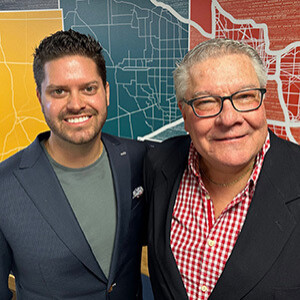
Sunday Dec 17, 2023
Sunday Dec 17, 2023
Welcome back to the podcast everybody. Noblesville-based Clancy’s Hospitality has been creating and running restaurants in central Indiana—and much of the Midwest—for nearly 60 years. The names are instantly recognizable for folks who have lived in these parts for a while, including Clancy’s Hamburgers, Grindstone Charley’s, Michaelangelo’s Italian Bistro, Red Rock Roadhouse and, most recently, The Fountain Room at Bottleworks District. But you almost certainly don’t know the name Fogelsong. Carl Fogelsong co-founded Clancy’s in 1965, and incredibly it has stayed in the same family for 58 years. It’s now on its third generation of leadership, with Carl’s grandson Blake spearheading a recent surge of restaurant openings alongside his father, Perry Fogelsong.
The story of Clancy’s Hospitality in many ways is the story of the central Indiana restaurant industry. Clancy’s Hamburgers beat McDonald’s to the punch in many areas in the 1960s, but it eventually was overpowered by burger chains. Grindstone Charley’s was on the front end of the casual American trend in the early 1980s, but the rise of national competitors put it at a disadvantage. But Clancy’s Hospitality is nothing if not scrappy, and it has continued to adjust to new trends while leveraging savvy real estate decisions. It has a successful entry for the food hall trend—actually a version of its original concept—while also embracing high end dining with The Fountain Room.
For this week’s edition of the IBJ Podcast, Perry and Blake join host Mason King for a freewheeling conversation about the evolution of Clancy’s Hospitality over 58 years. The family-owned firm currently counts eight restaurants: Two Clancy’s Hamburgers, two Grindstone Charley’s, one Michaelangelo’s, The Fountain Room and two next-generation versions of Grindstone Charley’s—Grindstone Public House in Noblesville and Grindstone on the Monon in Westfield.
The IBJ Podcast is brought to you by Taft.
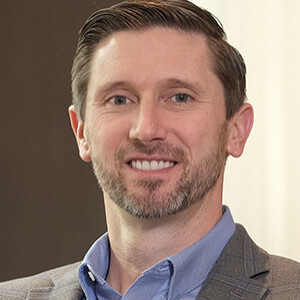
Sunday Dec 10, 2023
Former drag racer Morgan Lucas now in driver’s seat at Lucas Oil Products
Sunday Dec 10, 2023
Sunday Dec 10, 2023
His last name literally is up in lights on downtown’s biggest stadium, although he probably could wander through a crowd of 60,000 Indianapolis Colts fans in near-complete anonymity. Morgan Lucas is the president of Lucas Oil Products, and quite literally grew up with the company. His parents, Forrest and Charlotte Lucas, founded the firm in 1989, when Morgan was about 7 years old. His youth and tween years were spent in part making deliveries to early customers and playing with Hot Wheels at trade shows under the table bunting at the Lucas Oil booth.
Then he discovered drag racing, and the die was cast. From 2004 to 2016, he won about two dozen titles and started his own racing team. That experience under the hood of his business gave him a decent footing as he transitioned to the family company and tried to learn all facets of developing, testing and selling engine and gear oils for cars, trucks, marine crafts, motorsports vehicles and industrial machines. It’s a tough company to get your arms around, as it sells more than 300 products in 48 countries and maintains several subsidiaries loosely related to sports, farming, transportation and metal fabrication.
Morgan was named president in 2020 and effectively now serves as the company’s CEO. And in an unusual mirroring of the firm’s founders, Morgan is married to the company’s chief administrative officer, Katie Lucas. In this week’s edition of the IBJ Podcast, Lucas recounts what it was like growing up with hard-charging entrepreneurs as parents, how he and his wife have geared their relationship at home and at work, the value of being the naming rights sponsor for Lucas Oil Stadium, and the recent decision to relocate the company’s headquarters from California to Indianapolis.
The IBJ Podcast is brought to you by Taft.
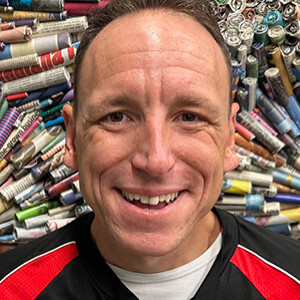
Monday Dec 04, 2023
Monday Dec 04, 2023
Joey Chestnut is the king of competitive eating. You almost certainly have seen video clips of him gulping down dozens of hot dogs, boiled eggs, tacos, wings, burritos, Twinkies and/or spears of deep-fried asparagus. He in fact has more than 50 gastronomic world records, including a vaunted 76 Nathan’s Famous hot dogs, with buns, eaten in 10 minutes. He’s the first to admit that competitive eating is a little weird, but he has a natural affinity for it, and it allows him to make hundreds of thousands of dollars a year. He confirms in his IBJ Podcast interview recent reports that he earned close to $500,000 in 2022.
A few things brought him to the IBJ Podcast studio in late November. He recently moved to Westfield, which now is his home base for spending about 140 days a year on the road. He chats about the reasons in his conversation with podcast host Mason King. Chestnut also was preparing for the 10th Annual St. Elmo Shrimp Cocktail Eating Championship, which this year was staged on Dec. 2 as part of the festivities for the Big Ten Football Championship. He explains how he prepares to down somewhere in the neighborhood of 18 pounds of shrimp, plus St. Elmo’s extra-potent cocktail sauce. (He recently hit 40, and it’s not as easy as it used to be.) But the lion’s share of the conversation concerns how he built a career in competitive eating and assembled all of the revenue streams he leverages to make a good living.
The IBJ Podcast is brought to you by Taft.

Sunday Nov 19, 2023
Sunday Nov 19, 2023
We’re entering the holiday season, of course, and that critical six-week period in which we are encouraged to indulge in conspicuous consumption. IBJ Podcast host Mason King has it circled on his calendar, since his goal this year is to keep from exceeding his modest budget. His plan for this week’s edition of the podcast was to ask regular contributor Pete Dunn—aka Pete the Planner—how best to avoid going into the red this year. But as usual, Pete had the bigger picture in mind.
Pete’s plan is to discuss the five things everyone should know about their financial life. Knowing those should help give you the grounding and confidence you need to guide your shorter-term budgeting decisions. And Pete and King still managed to talk a bit about how to deal with the unwelcome revelation that you and your family are spending more money than you’re making. Spoiler alert: This revelation came about after King and his wife did a line-by-line examination of their credit card and debit card purchases.
The IBJ Podcast is brought to you by Taft.
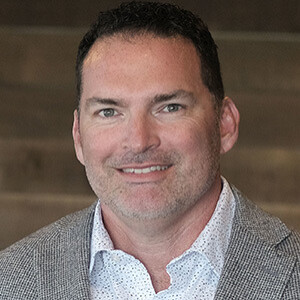
Sunday Nov 12, 2023
Sunday Nov 12, 2023
Over its first 10 years, The Garrett Co. has been one of the fastest-growing—if not THE fastest-growing—company in the Indianapolis area. Not coincidentally, it also has become one of the largest companies in the state of Indiana. To put it as simply as possible: The Garrett Cos. develops high-end apartment complexes. To flesh it out a bit: The Garrett Cos. has been built to include nearly every element of the apartment development process under one roof—including site selection, design, material sourcing, construction, landscape architecture and even a restaurant company with its own brands of brewhouse and coffee shop for mixed-use projects.
The Garrett Cos is based in Greenwood, where founder Eric Garrett launched the company from a barn in his backyard. He grew up in Evansville, and one of the seminal moments of his childhood was moving with his mom into their very first apartment. He found his niche in real estate, first on the finance side and then picking up experience as part of a development firm.
In this week’s episode of the IBJ Podcast, Garrett discusses the origins of the company; a business model that you could shorthand as “a rising tide lifts all ships”; the firm’s recent growth to nearly 300 employees despite a very deliberative hiring process; and how his role as CEO has evolved as the firm has sped through several ages of the corporate growth process.
The IBJ Podcast is brought to you by Taft.

